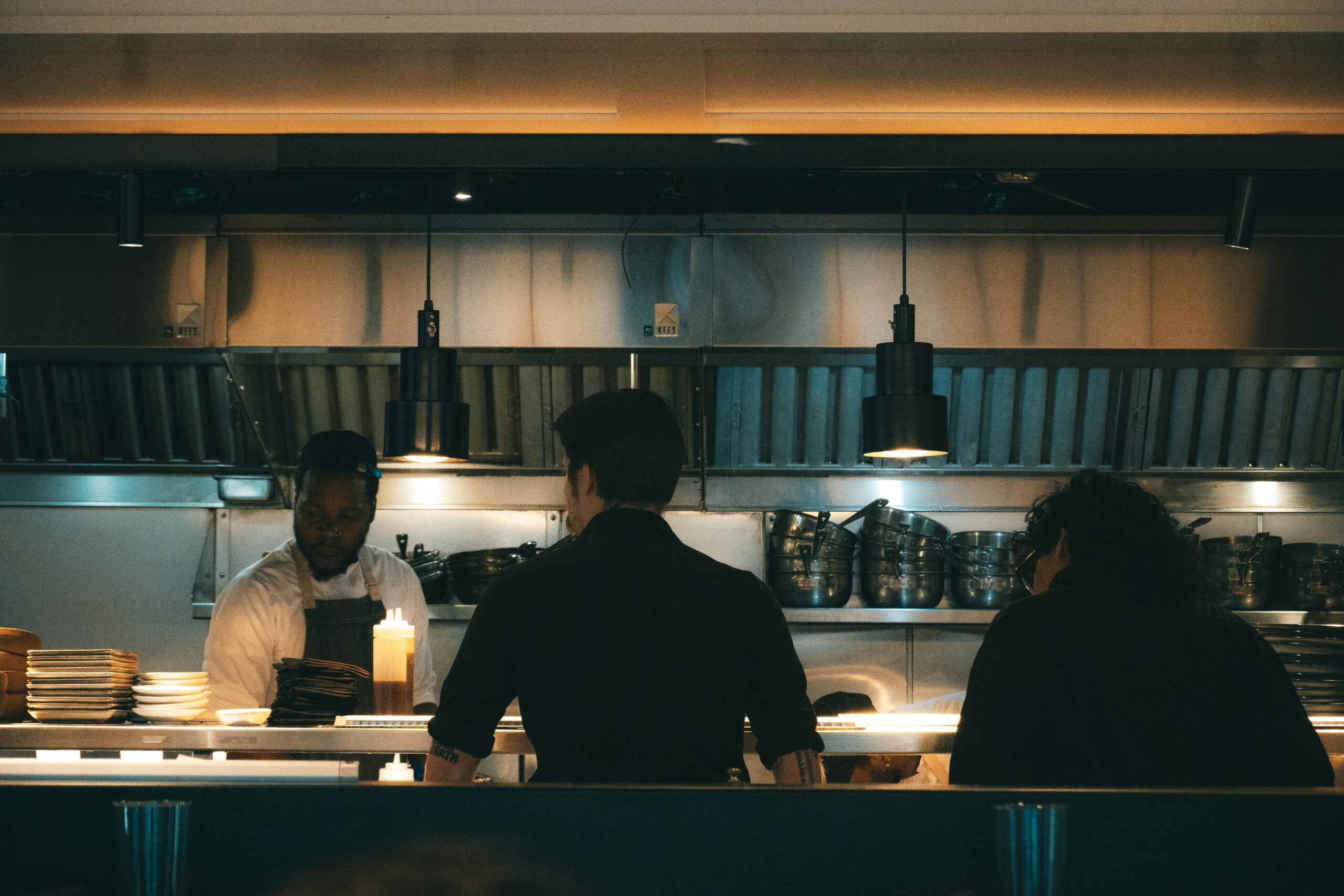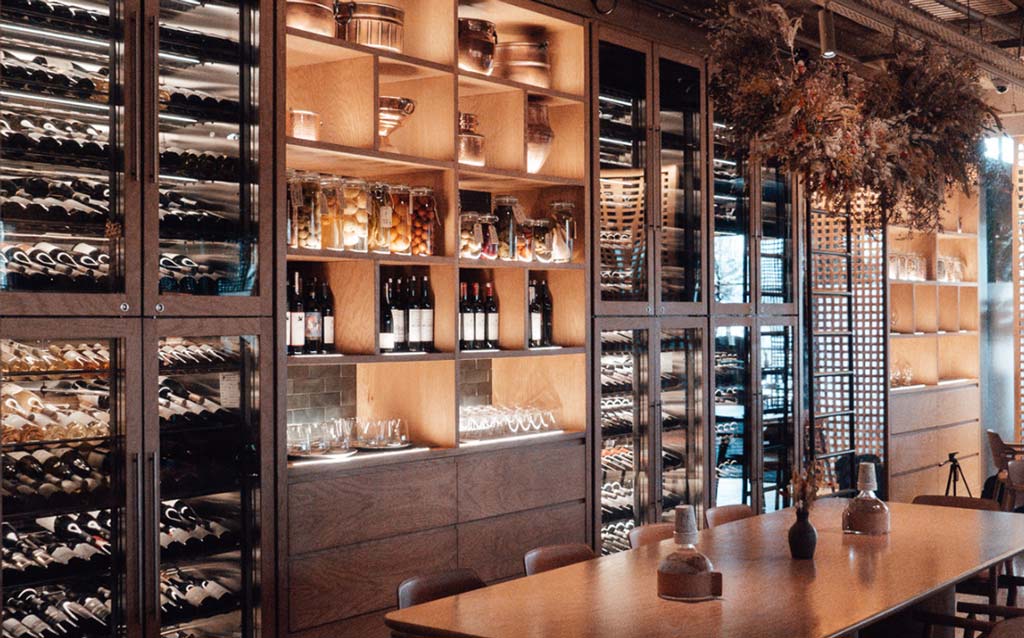You’re running the pass during dinner rush. Managing staff schedules. Solving the latest supplier crisis. But somewhere between keeping customers happy and doors open, your books are telling a story you’re not hearing.
Most restaurant owners handle their own accounting until it’s too late. They miss tax deductions worth thousands. They overlook cash flow patterns that predict trouble. They make growth decisions based on incomplete financial pictures.
The question isn’t whether you need accounting help. It’s recognizing when professional expertise becomes the difference between surviving and scaling.
Smart restaurant owners understand this isn’t about reaching some magic revenue number—it’s about knowing when your financial complexity demands specialized attention.
Key Takeaways
- Federal law requires accrual accounting once you hit $1 million annually, demanding professional expertise to implement correctly
- Multi-location operations, sophisticated tip pools, catering services, and lengthy monthly closes all indicate it’s time for professional help
- Delayed professional support leads to missed tax deductions, cash flow problems, and compliance failures that compound over time
- Startup, growth, and established restaurants each require different levels of accounting sophistication and strategic guidance
- Restaurant accounting specialists understand industry-specific deductions, seasonal patterns, and operational challenges that general accountants miss
Why Most Restaurants Need Specialized Accounting Support
Think of running a restaurant without proper accounting like navigating rush hour traffic without traffic updates. Sure, you’ll eventually reach your destination. But you’ll hit every jam, miss every shortcut, and burn through gas unnecessarily.
Restaurants are different from other businesses. You handle cash, credit, and tips daily. Inventory turns over quickly and spoils fast. Labor costs fluctuate with seasonal demand. Sales tax varies by location and service type.
Here’s what happens without specialized support:
The main pitfall is that restaurant owners operate with incomplete information. Cash flow patterns go unnoticed. Vendor payment timing hurts relationships. Credit opportunities slip by unrecognized.
The reality hits hard: approximately 38% of restaurants reported being unprofitable in recent industry surveys.
These aren’t failing concepts—they’re profitable restaurants that can’t see their own financial performance clearly enough to optimize it.
Clear Signs It’s Time to Hire a Restaurant Accountant
The transition from handling your own books to needing professional help rarely happens overnight.
Instead, it builds gradually as your restaurant grows and operations become more sophisticated. Recognizing these warning signs early can save you from costly mistakes and missed opportunities down the road.
You’ve Reached Key Revenue Thresholds
The most obvious trigger point arrives when your restaurant hits $1 million in annual revenue.
At this threshold, federal tax law mandates a switch from cash to accrual accounting—a change that fundamentally alters how you record transactions and recognize revenue. This isn’t just a bookkeeping adjustment; it’s a complete shift in financial methodology that requires specialized expertise to implement correctly.
Your daily operations become more complex, too. Sophisticated tip pool management systems create payroll complications that go far beyond basic wage calculations.
FICA tip credit calculations require precise documentation, while state tip laws vary significantly and change frequently.
Add catering services to your revenue mix, and you’re now managing contract accounting that differs substantially from standard restaurant service with different revenue recognition timing and sales tax obligations that vary by service type.
You’re Planning on Expanding
But revenue growth often brings additional complexity that compounds the challenge. As you expand to multiple locations, you’re suddenly dealing with intercompany transactions and consolidated reporting requirements.
Each location needs individual profit and loss tracking, yet you also need combined financials that accurately reflect your overall business performance.
Cost allocation between units becomes critical for understanding which locations drive profitability and which need operational improvements.
You’re Running Out of Time
Time becomes your enemy when you’re managing books yourself. If your monthly financial close takes over a week, you’re losing valuable time that should be spent on growth initiatives.
Professional restaurant financials should close within days, providing timely insights for decision-making. Extended closing periods indicate system breakdowns that only get worse as complexity increases.
You’re Missing Critical Financial Deadlines
Perhaps most importantly, DIY accounting creates dangerous compliance blind spots.
Sales tax complications multiply when you operate across multiple jurisdictions, where prepared food versus retail distinctions can dramatically affect your tax obligations.
Professional guidance prevents these costly mistakes while ensuring you capture industry-specific tax credits that often go unclaimed without specialized knowledge.
The True Cost of Waiting Too Long To Onboard a Financial Partner
Delaying professional restaurant accounting costs more than monthly fees. The financial impact compounds over time through missed opportunities and compliance failures.
Studies from Grant Thornton show hospitality businesses lose significant tax advantages through improper planning. Bonus depreciation rates decrease annually, making timing crucial for equipment purchases.
It’s all too easy for restaurant owners to overlook industry-specific deductions like the FICA tip credit and Work Opportunity Tax Credit without specialized guidance. These missed opportunities compound annually, creating substantial long-term costs.
Without professional oversight, restaurant cash flow problems escalate quickly. Industry data shows 31% of small businesses report over 30-day payment waits, with an average of $53,399 in unpaid receivables.
For restaurants operating on already thin margins, these delayed payments can quickly spiral into operational crises that force difficult decisions about payroll, inventory purchases, and vendor relationships.
Professional accounting helps prevent these cascading issues.
Different Business Stages Require Different Accounting Support
Your accounting needs evolve dramatically as your restaurant progresses through different growth phases.
What works during startup becomes inadequate during expansion, and established restaurants face entirely different financial challenges than emerging concepts.
Startup Phase
The early days of restaurant ownership present unique accounting challenges that often catch new operators off guard. Startup costs are hefty, with complex decisions around equipment depreciation, lease accounting, and initial inventory management that set the foundation for future financial health.
During this phase, you’re wrestling with establishing proper chart of accounts while managing unpredictable cash flow. Revenue streams are inconsistent, making forecasting difficult, yet you need reliable financial data to secure additional funding or negotiate with vendors.
The challenge intensifies because many businesses struggle to allocate time and resources to accounting while focusing on core operations, creating dangerous blind spots in financial management.
Professional accounting support during startup helps establish proper systems from the beginning. This includes:
- Setting up appropriate accounting software integration with POS systems
- Creating realistic budgeting frameworks
- Ensuring compliance with tax obligations before they become overwhelming problems
Growth Phase Accounting Requirements
As your restaurant gains traction, the biggest challenge companies in the growth phase face is dealing with the endless range of issues vying for more time and money.
Revenue increases create new complexities around sales tax collection across multiple jurisdictions, inventory management for higher volumes, and more sophisticated payroll requirements as staff expands.
This phase demands better accounting and management systems that can handle increased sales and customers. Your financial close process becomes more complex, requiring detailed cost analysis by location or revenue stream. Cash flow management becomes critical as you balance growth investments with operational needs.
Professional accounting becomes essential for maintaining growth momentum. Strategic technology investments in integrated financial systems prevent operational breakdowns that derail expansion plans. Expert guidance helps navigate the delicate balance of maintaining sufficient cash reserves while funding growth initiatives.
Established Restaurant Needs
Mature restaurants face different but equally complex accounting challenges. Your focus shifts from growth management to optimization and efficiency. Established operations require:
- Sophisticated financial analysis to identify profit leaks
- Optimize menu pricing strategies
- Make strategic decisions about renovations or concept refresh initiatives
At this stage, you need accounting support that goes beyond compliance to provide strategic insights. This includes detailed variance analysis comparing actual performance to budgets, competitive analysis of food costs and labor efficiency, and long-term financial planning for equipment replacement or facility improvements. The accounting becomes more analytical and strategic rather than purely operational.
Professional restaurant accounting specialists understand these evolving needs and provide the depth of analysis that drives continued profitability. They help established restaurants maintain competitive advantages through superior financial intelligence and strategic planning support.
Specialized Restaurant Accounting vs. General Accounting
The difference between working with a restaurant accounting specialist versus a general accountant can determine whether your business thrives or merely survives. Generic accounting services miss the nuanced financial strategies that separate successful restaurants from struggling ones.
Restaurant accounting specialists understand industry-specific challenges that general accountants simply overlook. They know how to maximize the FICA tip credit that can save thousands annually. They understand complex inventory valuation for perishable goods and how to optimize food cost calculations for profitability. Most importantly, they recognize the seasonal cash flow patterns unique to restaurant operations and plan accordingly.
Restaurant-focused accounting firms understand the timing of industry-specific tax deductions, from equipment depreciation strategies to energy-efficient upgrade credits that generic accountants miss. They provide strategic guidance on growth decisions, helping you understand the true cost of expansion before you commit resources.
The investment in specialized accounting pays dividends through improved profitability, reduced compliance risk, and strategic insights that drive better business decisions. When your financial partner understands your industry’s unique challenges, they become a true strategic asset rather than just a service provider.
Making the Smart Accounting Decision
The question isn’t whether your restaurant needs professional accounting support—it’s finding the right partner at the right time.
Smart restaurant owners recognize that specialized financial guidance becomes essential as complexity increases, whether through revenue growth, operational expansion, or regulatory changes.
Your restaurant deserves financial partners who understand the unique challenges of food service operations.
Ready to find your perfect accounting match?
We’re ready to help.



